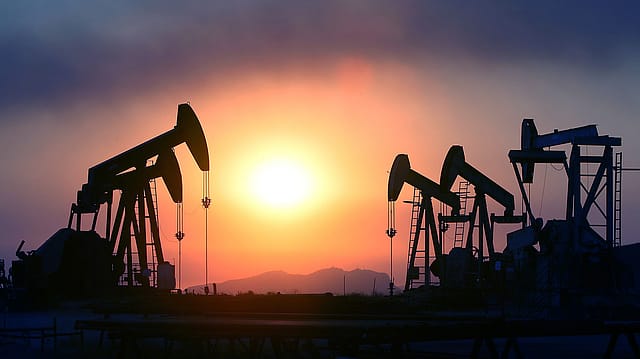Govt raises windfall tax on crude, diesel, aviation fuel
ADVERTISEMENT

The government has increased windfall tax on the sale of locally-produced crude oil, aviation turbine fuel (ATF), and high-speed diesel. The windfall tax on crude oil has been raised to ₹2,100 per tonne from the existing ₹1,700, according to a government notification. The revised tax rate is effective from January 3.
The central government also raised export tax on diesel to ₹6.50 per litre from ₹5, while raising the windfall tax on ATF to ₹4.5 per litre from ₹1.5, the order said.
India initially imposed the windfall tax on exports of crude oil, diesel and aviation fuel in July 2022 after private refiners preferred overseas markets to gain from high refining margins, instead of selling at lower-than-market rates in the country. The tax rates are revised every fortnight based on prevailing international rates.
The tax hike comes as oil prices fell from their highest levels in a month after International Monetary Fund (IMF) managing director Kristalina Georgieva warned of a tougher 2023 as major economies experience weakening activity. Brent crude futures dropped around 1.1% to $84.93 a barrel while U.S. West Texas Intermediate crude was at $79.49 a barrel, down 1%, after the U.S. dollar strengthened. Last month, Fitch Ratings said it expects the tax on windfall profits made by oil companies to be phased out in 2023 as oil prices have started to moderate.
"We expect the windfall taxes on domestic crude oil production levied by the government in 2022 to be phased out in 2023 with moderating prices," Fitch said in its APAC Oil & Gas Outlook 2023.
India imports around 85% of its annual oil requirement. The Russian oil share in India’s import basket has climbed to 22% in October from just 1% before the beginning of the Ukraine war. The share of India’s traditional suppliers, Iraq and Saudi Arabia decreased to 20.5% and 16%, respectively. India gets Russian oil at a deep discount of around $15-20 a barrel.
High crude prices will also have a direct impact on India's foreign exchange outgo and fiscal deficit as the country imports around 85% of its annual oil requirement. The country, which is the third largest crude oil importer and consumer, reduced central taxes in the recent past to control the prices of petrol, diesel and LPG. The high fuel prices will escalate the cost of essential goods and affect consumer spending. It will in turn have a huge impact on the government's income from excise duty.